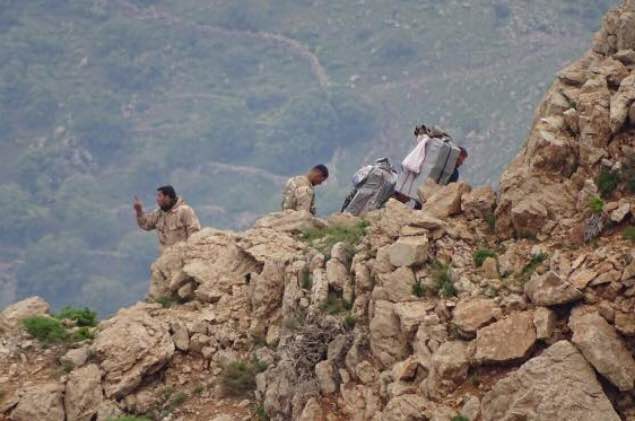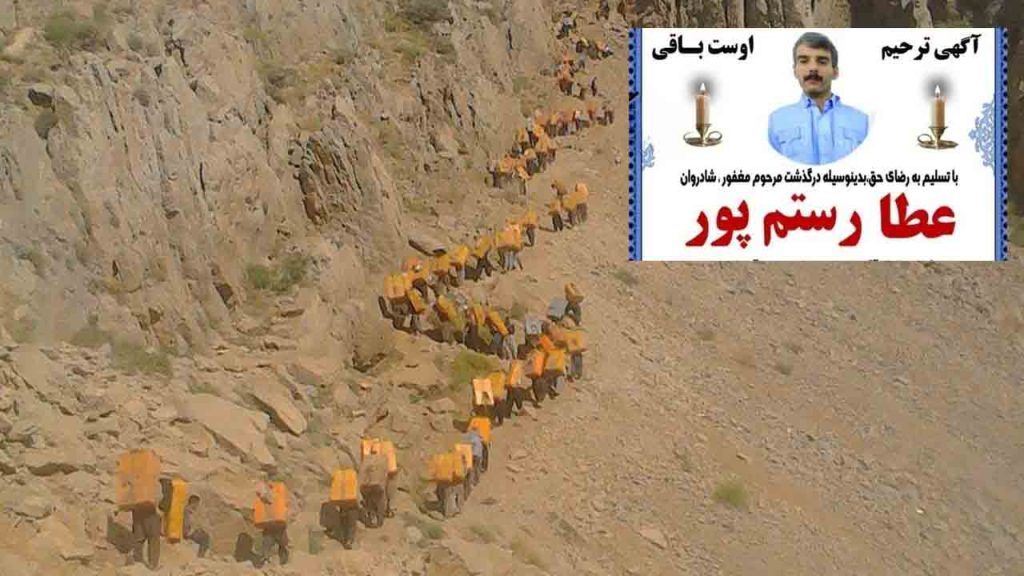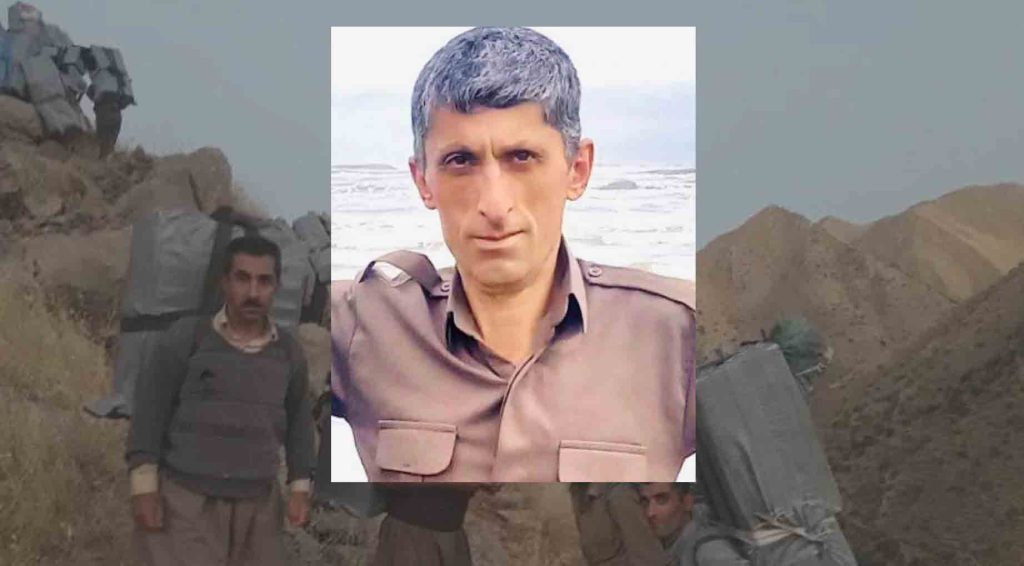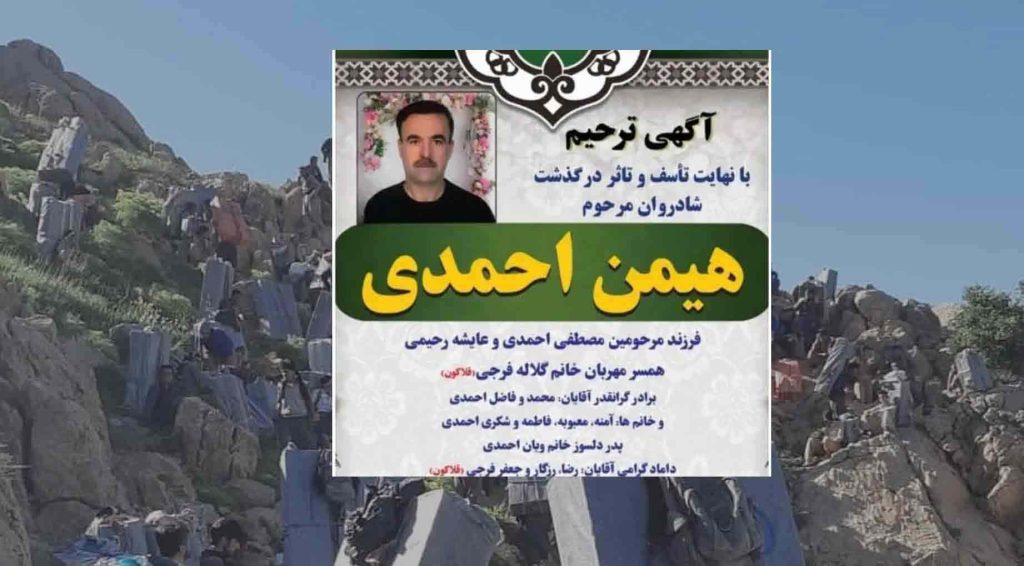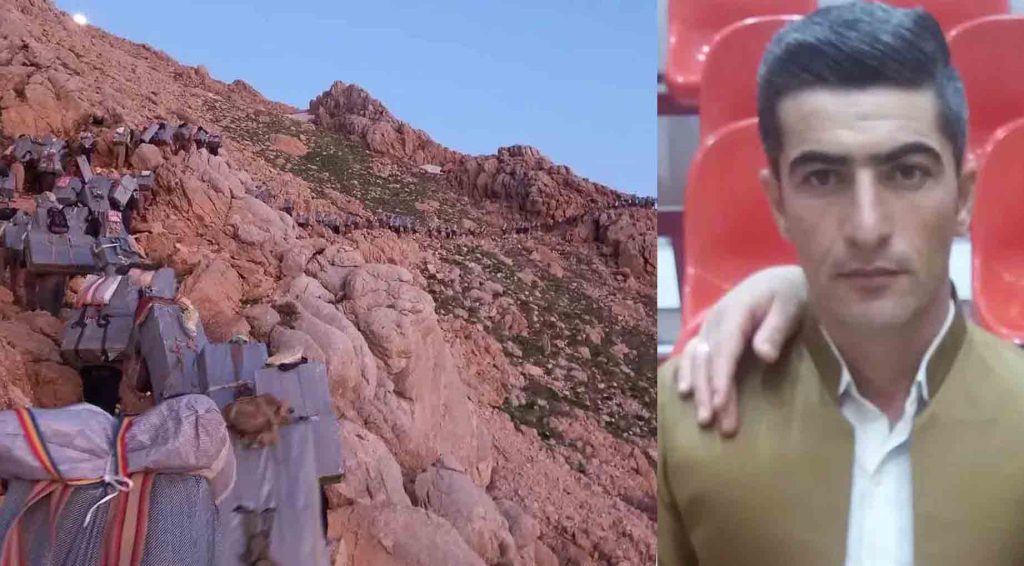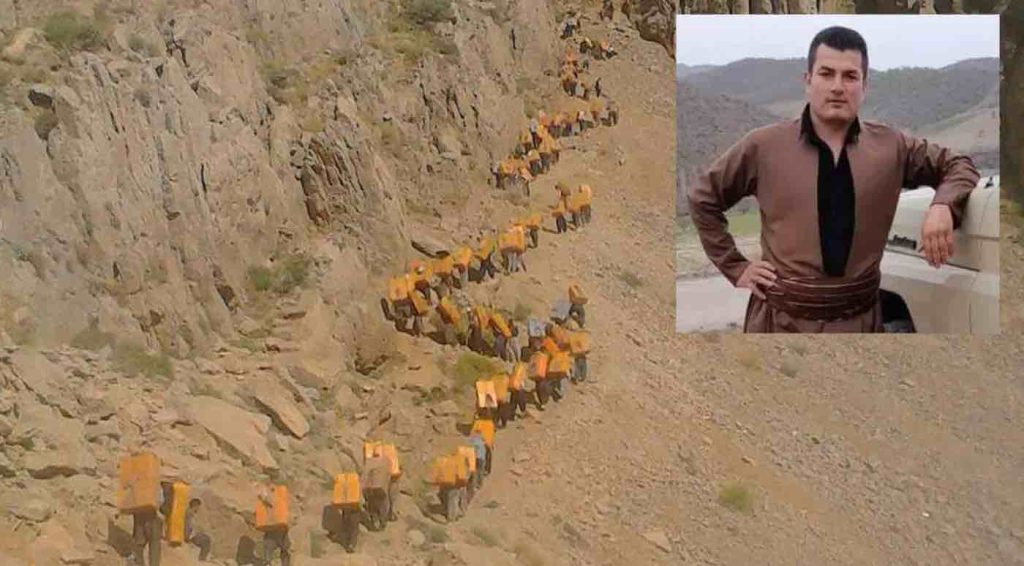Following the death of a Kolbar called Azim Ahmadi, who was killed at Nowsud of Kermanshah, ILNA News Agency arranged a talk with Hussein Zolfaghari (the Deputy Minister of Political and Security Affairs). “ We do not have something called Kolbar. I do not know the origin of this word which has caused problems for both the people and the authorities.’, In response to a question about the death of the above-mentioned Kolbar, said Zolfaghari about the necessity of preventing this issue:
“We have organised markets on the borders of four border regions and we have also considered some exemptions for people working in these areas. Those people who use other routs for importing goods into the country in the name of Kolbars are carrying out an illegal action which is categorised as illegal crossing and smuggling.” He added.
Despite the above-mentioned statements, the Iranian authorities have closed all the official crossings dedicated to Kolbars following the referendum on independence of Iraqi Kurdistan held last year. This closure has resulted in the unemployment of 75,000 official Kolbars in the Kurdistan border regions and many of them have been forced to endanger their life for earning a living by turning to unofficial Kolbars (i.e. working as a Kulbar).
Following the protest against the closure of official Kolbari crossings, government officials previously announced that the government had ratified the Bill of Kolbari Replacement which allows each four-person family living in the border area could import up to 2 million and 800 thousand Tomans into the country.
“This plan coincided with the events related to import and export goods. We had a meeting recently and 123 types of goods were agreed upon by the four ministries and the proposal has been sent to the government who will hopefully approve it. Upon approval of this plan, the border residents will be able to import 123 type of goods into the country through the determined procedures in addition to benefiting from 2 million and 800 thousand Tomans of customs exemption per month. “, political and security of the Ministry of Interior said. Meanwhile, four Kolbars and border tradesmen have been severely injured by directing shooting of the border guards in the border areas of Sardasht and Piranshahr following the warning made by the deputy to the Interior Ministry.
According to the Kurdistan Human Rights Network (KHRN), on Oct 15, 2018, Sardasht border regiments in the village of Bryaji of Sardasht targeted a caravan of the Kolbars. This incident resulted in the injury of a Kolbar called Rasul Seraji who was transferred to a hospital in Orumiyeh. Doctors suspect that this Kolbar would suffer from spinal cord injury due to the severity of his injury.
Moreover, on Monday, Oct 15, 2018, a Kolbar called Kaveh Dashhir from Gazprom village of Piranshahr was shot and seriously injured by border guards.
On Oct 16, 2018, two other Kolbars called Seyyed Mosleh Qurish and Jabar Barshan from the village of Nanjeh Piranshahr were wounded at the border areas of Takhchin as a result of direct shooting of the border forces.
Following the closure of the Kolbari border crossings, the systematic killings of the Kolbars and border tradesmen have been alarming over the last few months according to the KHRN investigations. Only in the past three months, at least 15 Kolbars have been targeted and killed by Iranian troops while at least 24 others have been injured. It is noteworthy that 3 Kolbars have been also injured due to mine blast and fall from the height while 17 Kolbars have lost their life due to mine blast, falling from the height and accidents.

